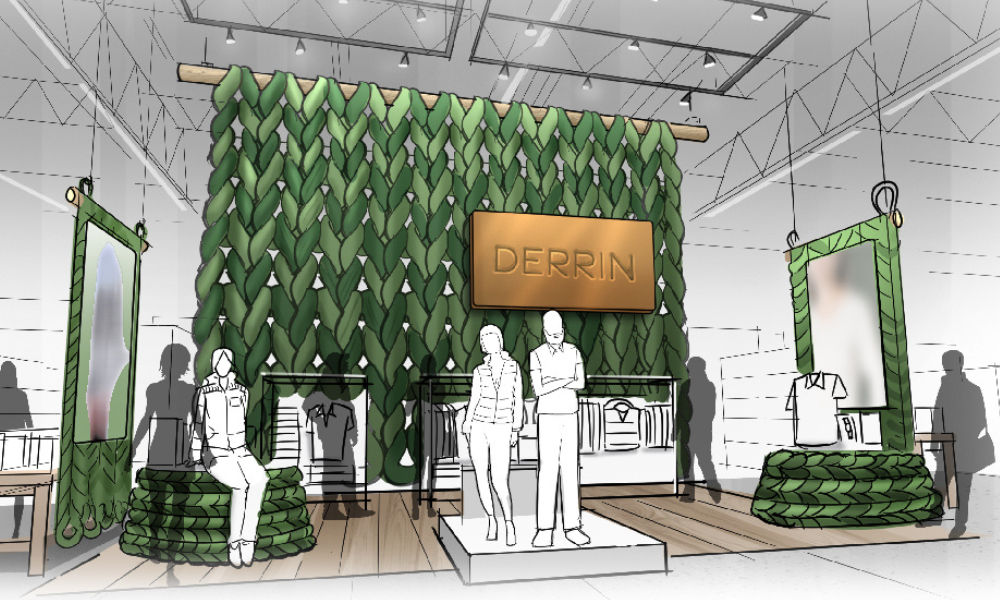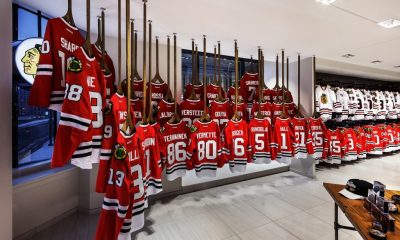The Oops! factor is what stops people from taking risks. Every new idea contains an Oops! factor.
It could go wrong.
It could also go right.
That's where you divide up the Oops! from the Woo-Woos.
The Oops! take chances. The Woo-Woos say, “Whoa, what can go wrong with this?”
Advertisement
A few friends were sitting around talking and trying to outdo each other in tales of retail strangeness — things that sounded good but didn't work. (The opposite, of course, is things that sound good and then do work.)
Dayton-Hudson had a famous flower show, a big annual event, in its eighth-floor auditorium. There was a new theme each year, and an opening ceremony with a wave of Twin Cities garden doyennes and other political, cultural and particularly horticultural dignitaries. They gave the event clout.
One year the bright idea was to cut the ribbon, which would signal the release of a variety of birds, which would then fill the air with birdsong. That was the plan.
The ribbon was cut. The birds were released. Mortal enemies, they instantly attacked and killed each other. The air was filled with feathers, blood and shrill cries, mostly from the dignitaries and the press. Oops.
Someone failed to do some ornithological research, which could have foretold the consequences. This led to horror and to angry birdlovers hating department stores.
BEWARE OF POOPS!
Advertisement
The architects of the Luxor Hotel in Las Vegas also failed to visualize the consequences of their idea. The architects designed the brightest light in the world at the top of the glass pyramid hotel. This beacon would identify the Luxor.
Indeed it did. This time it was architects who failed to consider entomology. The world's brightest light is a magnet for bugs. Millions of them swarmed to the summit of the hotel. The bugs are a magnet for enormous flocks of birds. The birds ate the bugs and relieved themselves on the windows of the high rollers'suites. This lack of foresight cost the hotel approximately $5 million in custom window-washing equipment that could scale the slanted sides of the pyramid. Oops.
Beware of projects that involve animals and children.
BEWARE OF NATURE
It always seems like a fun idea to hold meetings outdoors. But you can't schedule nature. Clients who suggest holding meetings outside do not foresee that focus and concentration don't fit in with nature's distractions. Nature does not compete.
Oops.
Advertisement
I was reminded of this fact the other day when one of my favorite clients, Gordon Cooke of J. Jill, was on the phone quizzing me about the details of an August meeting held at his headquarters. We talked about outdoor possibilities, or using the indoor warehouse. We talked about heat, concentration, lighting, expenses, talking about it now, not later, and talking about it with the boss. Before it's too late.
Isn't a lot of our visual creativity in the planning? We create the perfect assurance that tests have been run and rehearsal has taken place, and that only now can you dare to be spontaneous. Most of the work is done before the show. The show is only the last few minutes, those precious few in which your audience finally arrives.
BEWARE OF UNTRIED MATERIALS
I once installed a shiny white vinyl stage for a shoe show at the Plaza Hotel in New York. We did not put the vinyl on the stage for rehearsal, so as to keep it clean. I was the first person out on the stage during the show. It was so slippery that I slid off the stage into the first row of chairs. Behind me, 30 models suddenly became terrified of walking on the dangerous surface and refused (wisely) to work. The show was called to a halt while the stage manager sprinkled the stage with Coca-Cola, an old theater trick that we should have used during rehearsal.
Oops.
The opposite of Oops! is a new idea that works.
Marvin Traub never could have pulled together his amazing comprehensive “country” promotions, sending 100 buyers to Japan 18 months before the “show.” The Bloomingdale's marketing people, all of them, also knew the plan, according to a schedule. The idea was daring and untried: bring back $22 million of merchandise nobody in the U.S. had seen here before, and sell it.
The genius of the promotion, which lasted six weeks and sold out, was in Traub's ability to see the dream clearly enough, and early enough, and forcefully enough, and powerfully enough, to make it come out the way it had been planned. It was a perfect blend of idea and implementation. It was visualization so painstakingly presented that ultimately, the customer had exactly the dream Marvin had, and paid good money for it.
I hired Molly (a cow) this year, for a show in Chicago. The owner/renter knew plenty about consequences. In order to get a cow into the auditorium of a hotel, you not only need the cow, but also a contract, a trainer, an agent, insurance and sanitary floor covering from the truck at the loading dock all the way up to the ballroom and onto the stage. You also need to know that the cow will be nervous and, in fact, will not stop peeing — and more — as long as it is onstage.
It is better to know than not to know this, and to know it in advance. One is not likely to have the broom, shovel, container and guts on the spur of the moment. Oops!
Only when you are prepared for every possibility can you then decide if having the cow will cut through the noise to make the point, or whether the audience will be too thrilled by the cow's nervous behavior to pay any attention at all. Think of that. Visualize it. Forecast it. In advance.
BEWARE OF THE WOO-WOOS
But don't scrap a good idea because others are terminally short-sighted. Beware the troublemaking Woo-Woos who love their negative little witticisms — things like, “Let me play devil's advocate,” or “Worst-case scenario.” You want to slap them — hard. Part of good planning is anticipating what goes wrong and stopping it. There is plenty of time for reality, but don't begin there. People working on creative projects must agree to maintain the power of positive thinking.
You can sometimes tell just how good a good idea is by the amount of opposition you get to it. (Mark Twain said, “Every man with a new idea is a crank until the idea succeeds.”) Peter Hanig, the Chicago retailer who brought Cows on Parade to Chicago, spent two years being told by high-level officials that he was doomed, crazy, annoying, tasteless and wrong.
He disagreed. He disagreed so strongly with the naysaying devil's advocate dolts that he started over by finding himself two other relentlessly upbeat allies, and the trio, gaining strength, out-talked the negative background noise and brought 400 fiberglass cows to the streets of Chicago and brought the city $200 million in revenue and much joy.
Oops! gives life to an idea, and thrills to performers and customers everywhere. It is persuasive. It is our business. Without innovation, we do not exist. Without mistakes, we miss the strongest lessons.
To a Woo-Woo, every Oops! is the end. But out of Oops!, to a positive person, comes creativity.
The lifelong lesson of Oops! is to keep right on taking risks, and to keep on doubting and checking and triple-verifying everything, so that when the time comes to fly, you can forget everything but the show, and take yourselves, your customers and your audiences with you.
Peter's current activities include presentations to The J. Jill Group. A videotape of Peter's inspiring keynote address to RAC 2000, entitled “It's About Time!,” can be ordered from the Retail Advertising & Marketing Association (RAMA). Phone 312-251-7262; fax 312-251-7269; or visit them at www.ramarac.org.
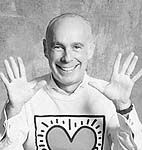
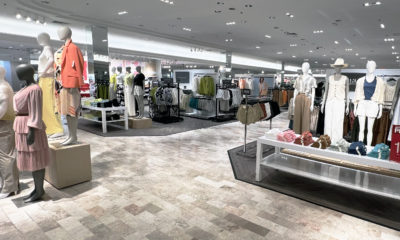
 Headlines1 week ago
Headlines1 week ago
 Photo Gallery1 day ago
Photo Gallery1 day ago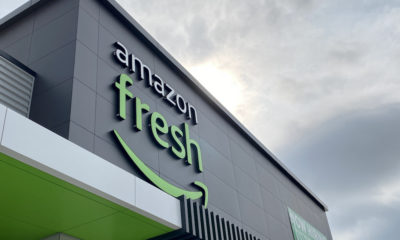
 Headlines2 weeks ago
Headlines2 weeks ago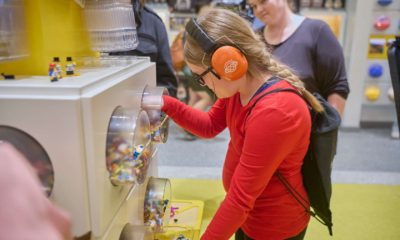
 Headlines2 weeks ago
Headlines2 weeks ago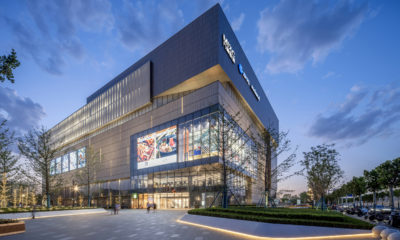
 Sector Spotlight1 week ago
Sector Spotlight1 week ago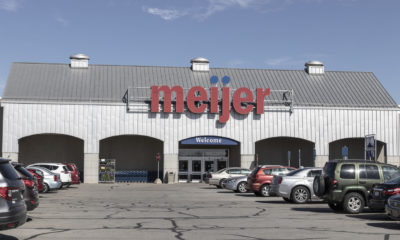
 Headlines1 week ago
Headlines1 week ago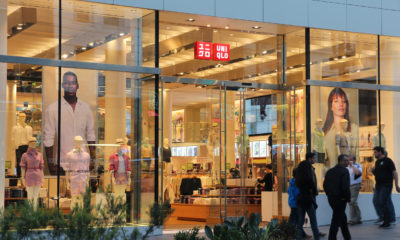
 Headlines1 week ago
Headlines1 week ago
 Headlines3 days ago
Headlines3 days ago
